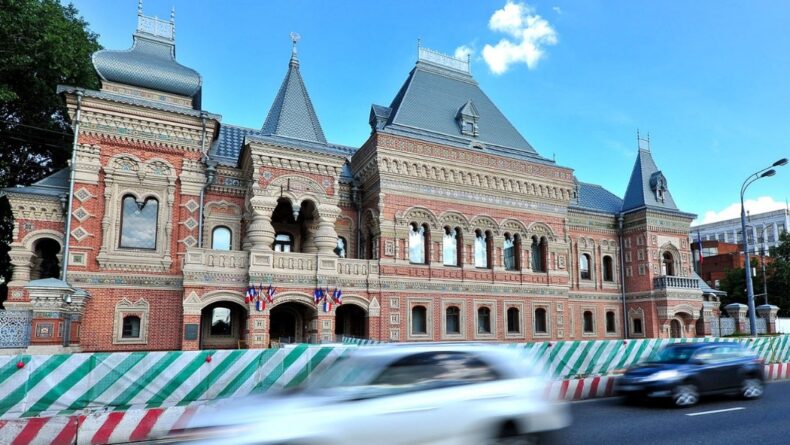Russia retaliated by expelling diplomats from Italy, France and Spain after these countries sent back Russia’s diplomats.
The Russian foreign ministry expelled 34 French diplomats and gave them two weeks to leave the country. The Russian ministry of foreign affairs summoned France’s ambassador to Russia and told him that the expulsion of 41 Russian diplomats was a “provocative and unfounded decision.”
The Ministry informed that 27 employees of the Spanish embassy also “have been declared person non grata” and will need to leave the country within seven days. Maria Zakharova confirmed that 24 Italian diplomats have also been expelled. Russia has also sent back 45 Polish and 40 German embassy staff back to their homes.
Russia has blamed France for initiation and called them out for expelling Russian diplomats on the grounds of being spies whereas Russian maintained that their staff worked under the rules and regulations of the Vienna conventions.

Response:
Whereas Italian Prime minister Maria Draghi has called the incident hostile and said that it was important for diplomatic channels to remain open during crisis times.
France called the incident unjustified and on the same lines the Spanish government claimed that their reason was justified for security reasons but Russian action was not based on the principle of reciprocity.
US Russia spat:
The local government of Moscow has supported a decision to name an area in front of the US embassy in Moscow “Donbas Defenders Square”.
This goes back to 2018 when a street outside the Russian Embassy in Washington got named after an opposition leader Boris Nemtsov who was assassinated in 2015.
Impact:
In times like these open communication channels help reduce the tension among countries but unfortunately expelling diplomats has become a way of showing disagreement and punishing the host country. There are rules and regulations in the Vienna conventions to deal with the diplomatic impasse but countries take the easy way by expelling diplomats to register their anger.
Isolation of Russia:
Russia invaded Ukraine in late February, saying that it was necessary to save the Russian speaking population in Ukraine which was facing genocide. Therefore, western countries have been trying to isolate Russia on all possible fronts. Moscow faces tons of international sanctions causing Russian economic deterioration. The tension between Europe and Russia has hit the cold war level.
Russian President Putin is ambitious to make Russia the same grand old empire and carry out the same influence on its neighbours but neither Russians possess the same power nor modern democratic countries want the influence of big neighbours on their policies.
Russian aggression has sent chills among smaller nations which have been dependent on the protection of international law. These States are going to try to become part of global security alliances to avoid the Ukrainian fate.
Taiwan issue surfaced as Russia went to war with Ukraine. There have been speculations regarding the possible invasion of Taiwan by China and its possible security dynamics. The United States has assured the Taiwanese people that they will come to the aid of Taiwan in case of any invasion threat.
Sweden and Finland Nato bid:
Finland shares a large boundary border with Russia and recent events have made Finland cautious about their policy decisions. Sweden has the same security concerns. Russian aggression has compelled both countries to think about their long-time policy of non-alliance. Finally, Sweden and Finland have officially bid to join NATO.
Russia has been issuing warning to Finland and Sweden to not Join NATO otherwise they would face the implications. These Russian warnings have been driving these nations closer to joining NATO.
Is it resurgence of Real Politic?
In 1992 after the fall of the Soviet Union, American political scientist Francks Fukuyama predicted that it’s the end of the history. He claimed that western liberal democracy has won and rule of law will become the governing principle for coming decades.
Here we are after three decades, analyzing an invasion on a smaller country by a powerful neighbour ignoring all the international laws. The world is watching the destruction of the rule-based order.
The eventuality of this war is more security alliances, greater defence spending, and fear-mongering which will translate in the ascendance of realist politics worldwide.
Edited By : Aaradhana Singh
Read More : Havana Syndrome: the diplomats’ syndrome on rising; delays Kamala Harris’s Vietnam flight













